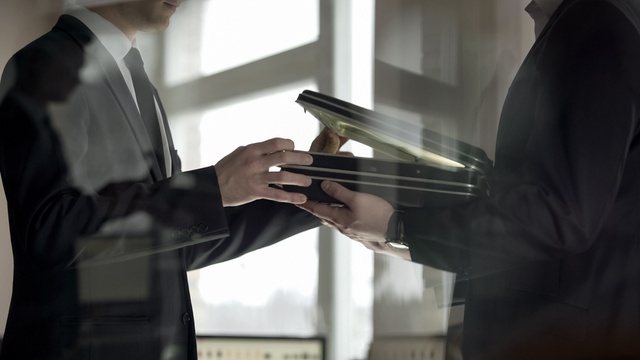Money laundering costs the UK economy billions of pounds every year. We looked at what it is and the processes involved.
What does money laundering mean?
Money laundering is the process of taking money obtained from illegal activity and making it look as though it’s come from legal sources instead.
The “dirty” money gets earned through criminal activities such as drug trafficking or fraud. After the money laundering, it appears to be "clean", with no links to its criminal beginnings.
In the UK, money laundering laws forbid the possession, handling, and knowledge of any illegally earned proceeds (money or otherwise).
How does money laundering work?
Money laundering works by putting illegally earned cash through multiple legitimate transactions. It's usually put into a legal organisation such as a casino or a restaurant first. It more commonly occurs in places that deal with cash transactions.
The money is then sent on to different accounts, perhaps exchanged to foreign currency and sent across borders, before eventually being invested into something legitimate - like expensive cars or property. By the time this happens, the exact route it has taken will be hard to trace. The cars and property can then be kept or sold to turn back into "clean” cash.
Al Capone funnelled dirty money through launderettes that he owned because it's hard to keep track of cash transactions at places like launderettes. This is where the term money "laundering" originated. So, if Al Capone took $2,000 a day in clean money, he might declare that he took $4,000. The extra $2,000 is the dirty money and is now in the system and can then be cleaned through the various stages.
How many stages are involved?
There are three stages to money laundering.
1. Placement
This is the initial stage of placing the dirty money into a legitimate business - like a launderette. Once the money is in the system, it's moved around. Dirty money can also be placed in the system and disguised by loaning it out to people, who'll then repay it with 'clean' money. At this stage, the money is usually split into small amounts to help avoid suspicion.
2. Layering
Layering is the stage where the dirty money gets moved around the system in different transactions. Each layer of the transaction aims to keep disguising the source. The funds might be transferred abroad, exchanged for foreign currency, put into offshore accounts, or used to buy expensive items such as property, jewellery or art.
3. Integration
The final stage is when the money makes its way back to the original owner. Since it's been effectively 'cleaned' so much, it's then deemed safe to handle because it's difficult to trace. It could be returned as either cash, investments, or items such as property or jewellery. In some cases, the money finances terrorist activities.
What is anti-money laundering?
Various anti-money laundering regulations are in place. Establishments such as casinos, banks, solicitors, and estate agents, must adhere to rules and processes that exist to help crackdown on money laundering.
For example, if a bank customer tried to pay an unusually large amount of cash into their account, or started to receive unexplained deposits, then they’d be subject to checks.
Or if an estate agent suspected that a client was involved in criminal activity and bought a property to disguise it, then they'd have a duty to report it to the authorities.
Anti-money laundering and buying a house
When you apply for a mortgage, you’ll be subject to anti-money laundering checks, especially if you’re financing a large part of the purchase with cash. The bank will need to make sure that you’re funding the purchase legitimately.
When you’re in the process of getting your mortgage, you’ll need to show your previous bank statements, usually from the past 3-6 months. This so your potential lender can make sure there’s no evidence of money laundering in your bank history.
Your mortgage adviser and your solicitor might also question where you got your deposit from. If some or all your deposit has been gifted from relatives, then you’ll have to provide evidence. This means you might have to provide identification for whoever gave you the money.
By doing this, solicitors and mortgage providers can ensure that the money has been earned through legal means, and not from any money laundering activity.
It’s a criminal offence for solicitors and mortgage providers not to have any anti-money laundering checks in place, so you should expect this if you’re looking to buy.
If you want to find out what happens when debt is sold to a collection agency, read on here.
Disclaimer: We make every effort to ensure content is correct when published. Information on this website doesn't constitute financial advice, and we aren't responsible for the content of any external sites.








